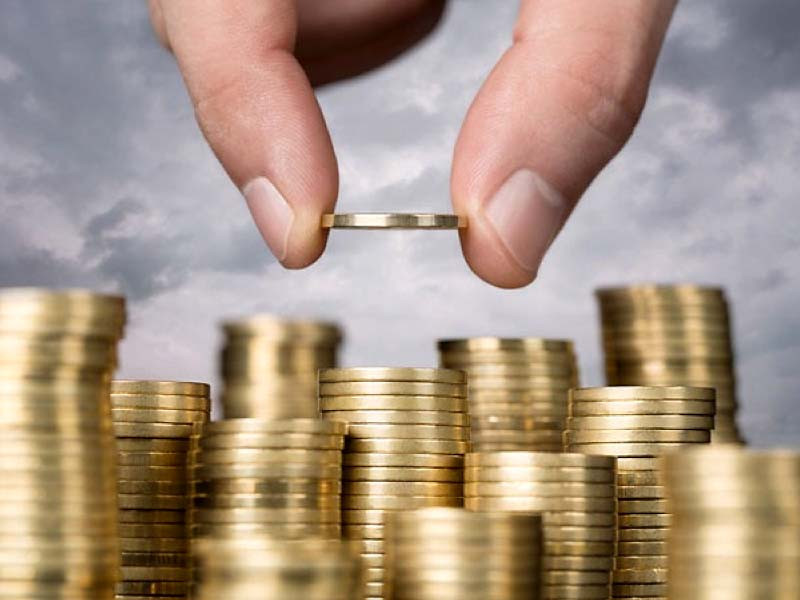
Federal Minister for Planning, Development and Special Initiatives Ahsan Iqbal on Saturday put forward the fact that political instability and adventurism have remained the biggest threat to Pakistan’s economy.
He was speaking at a round table conference titled “Pakistan’s Economics”, jointly organised by the planning ministry and the Lahore School of Economics.
The minister said in 2018, the outgoing government’s Public Sector Development Program (PSDP) and defence budget stood at around Rs1,000 billion each, whereas in 2022, the PSDP was reduced to Rs500 billion and the PTI government started defaulting on public payments in their last financial quarter.
Iqbal said in order to earn policy dividends, there needed to be continuity as policies take root, grow, evolve, and start bearing fruits over a decade.
“Thus, policy efforts to expand a resource base in Pakistan failed to bear fruits because they became a victim of political instability.”
The planning minist further added that the ongoing debate around the economy must not discount the political landscape.
He said in Vision 2010, it was identified that Pakistan must expand its energy capacity.
However, the minister said that the democratic government was thrown out and as a result, Pakistan faced one of the worse energy crises in 2010 and onwards.
Similarly, the minister said that in 2013, his office came up with ‘Vision 2025’ that envisioned Pakistan becoming one of the top 25 economies by 2025.
The government took all measures to actualise this goal by overcoming law and order issues, defeating terrorism, and breaking bottlenecks of energy and infrastructure, he said and added that as a result, think tanks like PWC started predicting that Pakistan can make it to the list of top 25 economies by 2025.
Ahsan Iqbal said that the PML-N government for the first time ever transformed Pak-China strategic relations into economic relations.
“As a result, billions of dollars of investment started to pour into infrastructure, energy and other sectors.”
He said the entire momentum that Pakistan picked up from 2013-18 broke due to political adventurism.
Furthermore, he said the China-Pakistan Economic Corridor (CPEC)’s initial phase of infrastructural and energy projects was to be followed by the establishment of Special Economic Zones (SEZs) by 2024.
However, from 2018 to 2022, work on 5 out of 9 proposed SEZs was never initiated, he said.
The minister said that Pakistan has two choices at a critical juncture in history. “Either, the country can again go through a stabilisation process and then again aspire for growth or it can address structural issues of economy by focusing on exports to expand its overall base by including value-added goods and services.”
As of now, the top publicly traded companies of Pakistan have negligible contribution towards exports, as current incentives do not push them to do so” he said.
Iqbal said that it’s true that Pakistan needs to walk through a stabilisation process but that must be coupled with a long-term industrial framework that realigns economic incentives in the country due to which Pakistan’s savings are not parked in real estate, gold and foreign currency but instead goes into making Pakistan a productive economy across all sectors.
“The govt is also focusing on harnessing private and foreign direct investment in sectors related to export-oriented goods and services.
Earlier, Prof Dr Azam Chaudhary, WTO Chair, and Dean of Economics at LSE said in deliberations, it came out that inflationary pressure is due to high aggregate demand because Pakistan has continued to spend which is illustrated by the high budget deficit.
Besides, he said a high surge in commodity prices globally, especially in fuel, created balance of payment problems.
In proposed solutions, Dr Azam stated that measures suggested by IMF, which the current Gov’t might be forced to implement are necessary for Pakistan’s economy.
He proposed to let the exchange rate find balance in the open market, reduce the budget deficit by cutting back on the expenditure on development projects and increase taxes.
Published in The Express Tribune, February 6th, 2023.


1722586547-0/Untitled-design-(73)1722586547-0-165x106.webp)


1732326457-0/prime-(1)1732326457-0-165x106.webp)
1732012115-0/Untitled-design-(14)1732012115-0-270x192.webp)











COMMENTS
Comments are moderated and generally will be posted if they are on-topic and not abusive.
For more information, please see our Comments FAQ